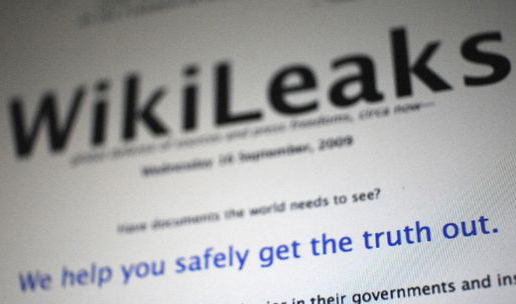
Johan Lindberg
OPINION: If you were a public servant in Australia with a strong moral compass and you came across corruption and maladministration in your department, who would you disclose it to? A journalist who cannot guarantee your anonymity - or WikiLeaks, where your protection is guaranteed?
The chorus of whingeing from governments around the world over WikiLeaks' publishing of US diplomatic cables is loud. There seems to be little understanding that, in part, WikiLeaks has grown out of a culture of excessive government secrecy.
For decades, the win-win situation of proactive disclosure of information (make all government information public unless it threatens the privacy of individuals or the security of the state) has been put to governments around the world.
The argument goes like this. Representative democracy is built on trust. One way of earning trust as a government is by being open about what you do - as far as possible. This will in turn mean that the public feels trusted with access to quality, un-spun information and will be more likely to take part in the political process.
Freedom of information laws are based on this belief. Unfortunately, FOI has, with a few exceptions, been used as a public relations instrument to project a false image of transparency and openness.
The most common responses to FOI requests - in Australia and around the globe - have been long turnaround times, excessive processing costs and stalling.
Most Australian governments are implementing FOI reforms, but it will be some time until we know if this will make it easier to acquire government-held information.
Information incentive
Perhaps WikiLeaks will provide an incentive to make FOI work better in practice?
The other side of the information equation is protection for whistleblowers. Australia has some of the most draconian legislation in the world in terms of stopping public servants from making government-held information public.
This is part of section 70 of the Federal Crimes Act:
''A person who, being a Commonwealth officer, publishes or communicates, except to some person to whom he is authorised to publish or communicate it, any fact or document which comes to his knowledge, or into his possession, by virtue of his office, and which it is his duty not to disclose, shall be guilty of an offence.''
The maximum penalty for the unauthorised disclosure of information is two years' imprisonment.
This is not likely to encourage revelations of maladministration, is it?
Yes, there have been some positive signs in the past few years, with increased protection for government whistleblowers and the passing of shield laws that allow journalists to refuse to disclose the names of sources in court proceedings in some states and federally.
However, compared to best international practice, the laws are still very weak.
Serious FOI action
If governments are serious about doing something about WikiLeaks, they could:
■ Implement far-reaching FOI laws that encourage public access to information that has not been sanitised by media advisers or other PR workers.
■ Create a culture where public servants and politicians facilitate access of the information they hold on behalf of the public.
■ Pass proper whistleblower protection that guarantees anonymity (as has been in force in countries such as Sweden for the past 60 years and has not created chaos or the continuous fall of governments).
■ Implement potent shield laws for journalists, which would give reporters confidence in granting anonymity to sources when needed.
Unworthy of democracies
Such reforms would in part deplete the soils in which WikiLeaks is growing. The current responses - describing WikiLeaks as terrorism, calling for the execution of Julian Assange and trying to shut it down behind the scenes is not worthy of mature liberal democracies. In fact, such tactics will probably make WikiLeaks stronger.
Of course, WikiLeaks is not unproblematic, as the publication of the Afghan war diaries and the Iraq war logs showed. Interestingly, it took collaborations with mainstream media outlets and professional journalists to give it further credibility and an ethical framework to aid the assessment of what to publish - a good example of collaboration between old and new media.
So far, the WikiLeaks publications have focused on government-held information. How long will it take until we see internal BP documents shedding more light on the Gulf of Mexico oil spill? Or documents from inside the Australian fossil fuel lobby outlining its current access to governments?
Maybe someone in the financial industry will leak information giving the background to the creation of collateralised debt obligations, that in part led to the global financial crisis?
It is hard to see how such information could not be in the public interest. - The Age/Pacific Media Watch
Dr Johan Lidberg is a senior lecturer in the school of journalism and Australian studies at Monash University, specialising in freedom of information and whistleblowing. This article was first published in The Age.



